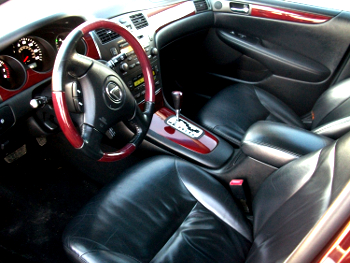Toyota pays up after 'sticky pedal' deaths
 Toyota will pay an incredible $1.32 billion to settle a criminal investigation into deadly safety issues.
Toyota will pay an incredible $1.32 billion to settle a criminal investigation into deadly safety issues.
At least five people have died in circumstances linked to Toyota motor vehicles in the United States, investigators claimed.
The Japanese car maker has now admitted that it misled consumers; concealing facts and releasing deceptive statements to downplay safety issues.
The problems caused cars to accelerate freely without input from the driver or use of the brakes, so they gained speed as drivers tried to slow down.
The scandal has plagued the company since it was first revealed in 2007, even the recall of 12 million vehicles worldwide in 2009 and 2010 could not remove the tarnish from Toyota’s reputation.
The auto maker must still confront hundreds of private lawsuits, but the $1.32 billion payout will reportedly settle the large-scale investigation by US authorities.
“Rather than promptly disclosing and correcting safety issues about which they were aware, Toyota made misleading public statements to consumers and gave inaccurate facts to members of Congress,” US attorney-general Eric Holder said while announcing the massive.
“It showed blatant disregard for systems and laws designed to look after the safety of consumers.”
Toyota claims a major aspect of the safety issue was in the design of certain floor-mats, which were capable of catching the edge of the accelerator pedal and holding to the floor.
The whistle-blower responsible for bringing Toyota's deception to light, Ms Betsy Benjaminson, says that the 'sticky pedal' explanation is not true and that the problem is an engineering or electrical fault, which may still persist.
Leaked copies of internal files show that Toyota was aware of the electronic nature of the problem but continued to blame either drivers, pedals or both.
The files also reveal multiple attempts to distract and dissuade media investigations from the company-wide problems.
But Toyota's statements about the recall aimed at solving the problem only misled the public, because the company did not recall all susceptible vehicles.
One engineer said that the top-selling Corolla was one of the worst vehicles for sudden acceleration, but it was not recalled.
Toyota concealed several sources of unintended acceleration caused by electronic control units or their pedals getting stuck, and was even found to have cancelled a design change to address the issue.
Official documents in the settlement recount a Toyota employee saying after a regulatory hearing: “Idiots! Someone will go to jail if lies are repeatedly told. I can't support this.”
Prosecutors had laid criminal charges on the table, but agreed to drop them if the company submits to independent monitoring of its safety practices for three years.
No individuals were charged.







 Print
Print